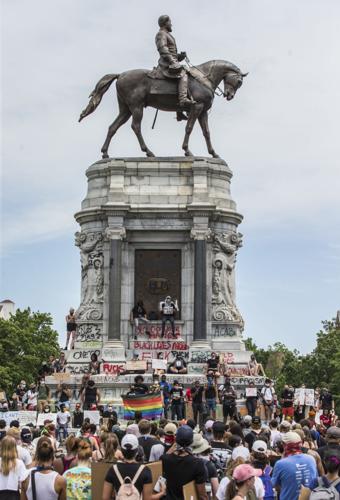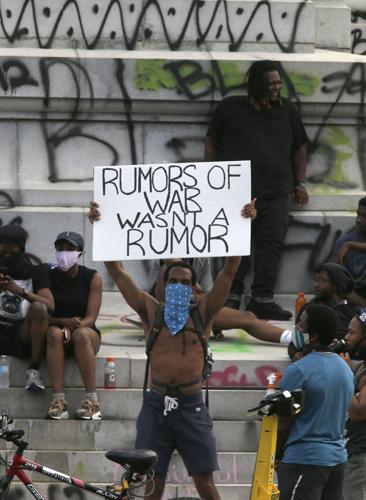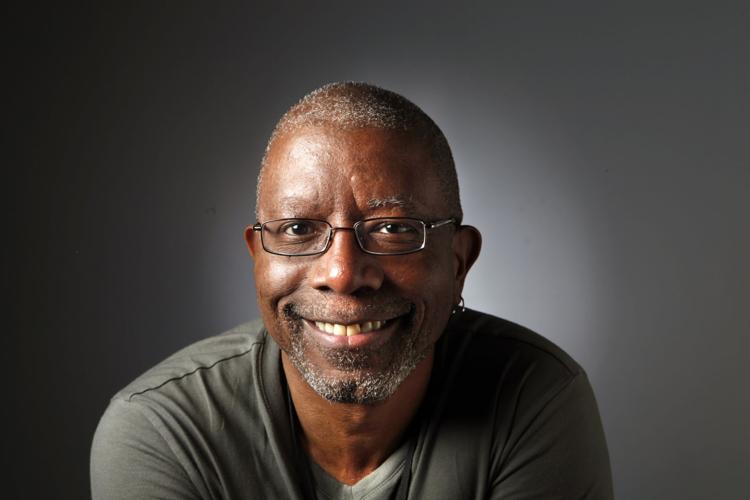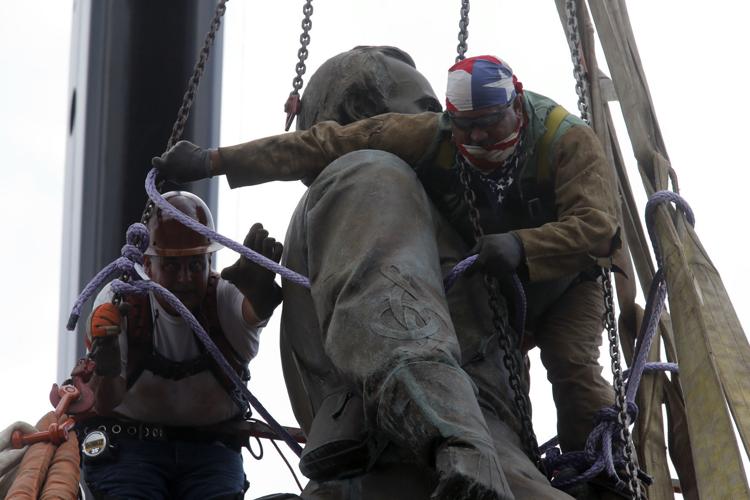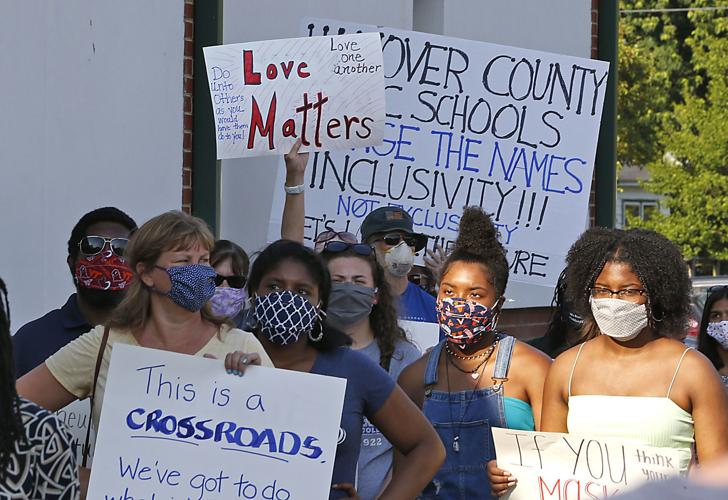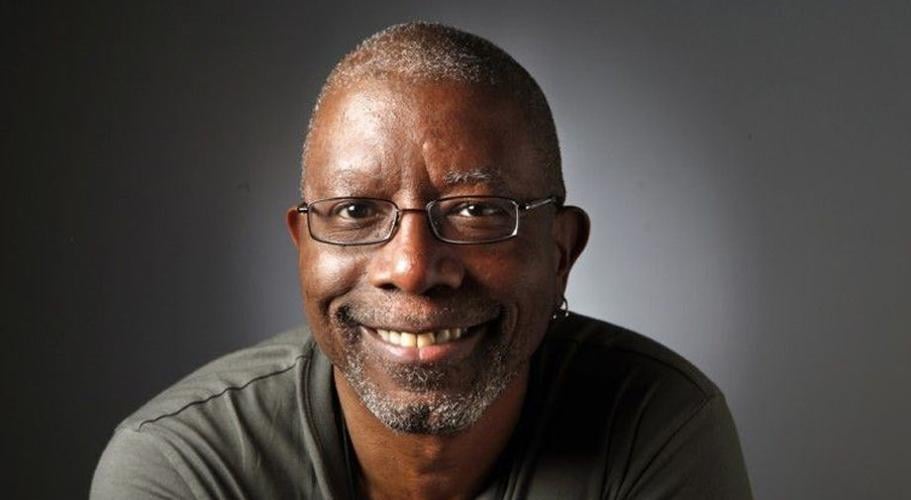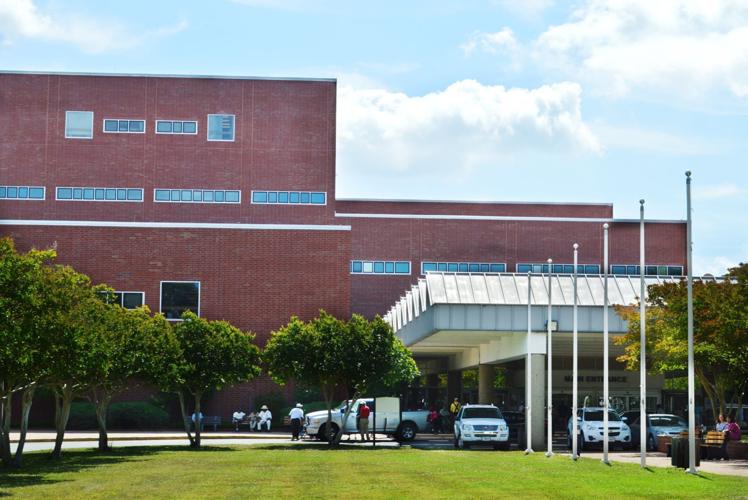At approximately 7:37 p.m. on Monday police used tear gas to disperse protesters around the Lee statue on Monument Avenue in Richmond.
A week after the murder of George Floyd, police in Richmond, Va., tear-gassed peaceful protesters at the Robert E. Lee monument.
Nearly a year later, Richmond Mayor Levar Stoney wrote an opinion piece in The New York Times in which he said the tear gas had been used “unintentionally.” It was left to the local newspaper, The Times-Dispatch, to set the record straight.
It was the fifth explanation offered by the city of what happened that night, though a full report has never been released, RTD reporters Ali Rockett and Chris Suarez wrote in a May 26, 2021, story.
Police assembled in front of the peaceful protesters and fired without warning. Officers then charged toward the monument, some deploying spray canisters.
The mayor’s critics say he did not take accountability for what transpired and focused instead on removing the city’s Confederate monuments as protesters, subjected to near-nightly volleys of chemical agents, demanded police reform.
”I think it’s appropriate to be upset about that kind of narrative reduction,” said Richard Meagher, an associate professor of political science at Randolph-Macon College who studies local politics. “I can understand him wanting to tell a story about these protests that are kind of simplified and makes him the hero, but it’s hard for the people who lived through that time to accept his version of events.”
The mayor’s words, published online over the weekend, contradict reporting by the Richmond Times-Dispatch and other eyewitness accounts. Stoney declined an interview request through his press secretary Tuesday morning. Hours later, he issued a statement saying, “I think the NYT guest essay speaks for itself.”
This pushback is but one example of journalism’s role in promoting a healthy democracy. That topic that will be explored Tuesday during “What Makes a Fact True: Local Journalism and American Democracy,” a Richmond Public Library forum supported by the Andrew W. Mellon Foundation and the Virginia Center for the Book, in partnership with The Pulitzer Prizes. (I will be one of the panelists.)
This forum comes at a time of unprecedented challenge for both newspapers and U.S. democracy, which experienced an insurrectionist assault on Jan. 6, 2021, that all but a few Republican congresspersons are attempting to cover up.
These crises are not unrelated.
In an age of “alternate facts” and internet misinformation, the inability to distinguish fact from fiction — i.e., the lie of the stolen election — is corrosive.
Like the pandemic, global warming and systemic racism, democracy is a crisis we ignore at our own peril.
The demise of newspapers has real consequences.
Cities where newspapers have been shut down saw increases in government costs as a result of a lack of scrutiny over local deals, according to an article in the Bloomberg CityLab. The struggles of newspapers have also been linked to inadequate coverage of issues such as crime and poverty, and to greater voter polarization.
An example of that polarization — and the growing disregard for democracy — is J.D. Vance, a national figure I covered during his 2017 visit to Richmond.

Helen Nunley sat by as J.D. Vance signed copies of his memoir “Hillbilly Elegy" at The Woman’s Club in Richmond in 2017.
Vance spoke at St. Paul’s Episcopal Church on the heels of his bestselling memoir, “Hillbilly Elegy.” He sounded clearheaded as he spoke of the disaffection of those the American dream had left behind.
“And unless we make our society a place where kids who grow up in tough circumstances feel like the future is a place of optimism and hope instead of a place of cynicism and fear, it will continue to mean that we have a very unpredictable, a very nasty and a very charged politics,” he said. “And I personally don’t think that’s in anybody’s best interest, whatever your political persuasion.”
But five years later, Vance is running as a Republican for the U.S. Senate in Ohio, peddling cynicism, fear and a nasty and charged politics.
“I tend to think that we should seize the institutions of the left,” Vance was quoted as saying in Vanity Fair magazine. “And turn them against the left. We need like a de-Baathification program, a de-woke-ification program.” He urged Donald Trump, if he regains the White House, to “fire every single midlevel bureaucrat, every civil servant in the administrative state, replace them with our people.”
When our politicians draw their inspiration from former Iraqi president Saddam Hussein, democracy is on the ropes. In many states, Republican lawmakers, using the Big Lie as an excuse, are working to subvert the election process.
Democracy works only to the extent that we all fight to preserve it. Information is the indispensable artillery in that fight.
If we don’t arm ourselves with truth and shield ourselves against falsehoods, the battle is lost.


